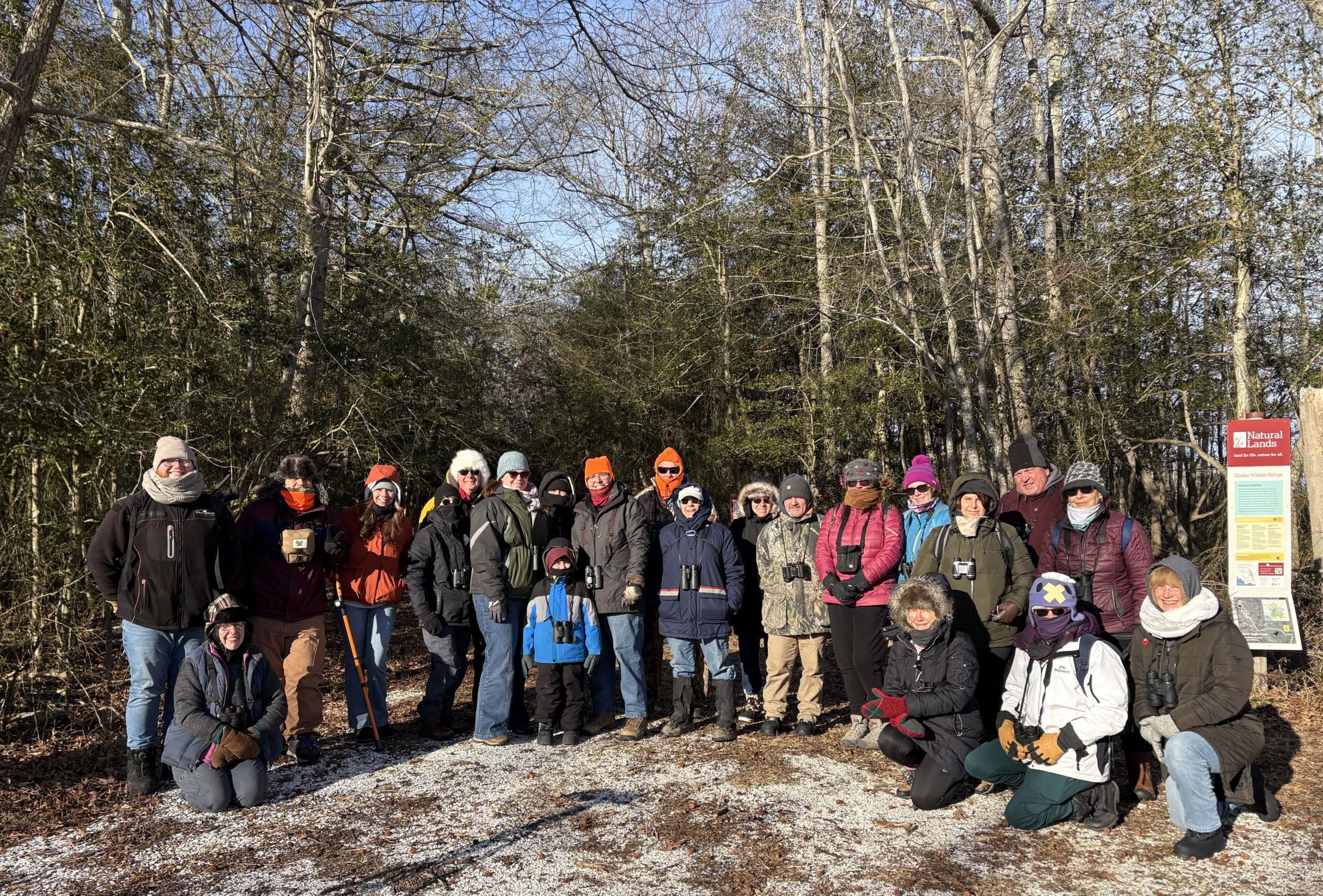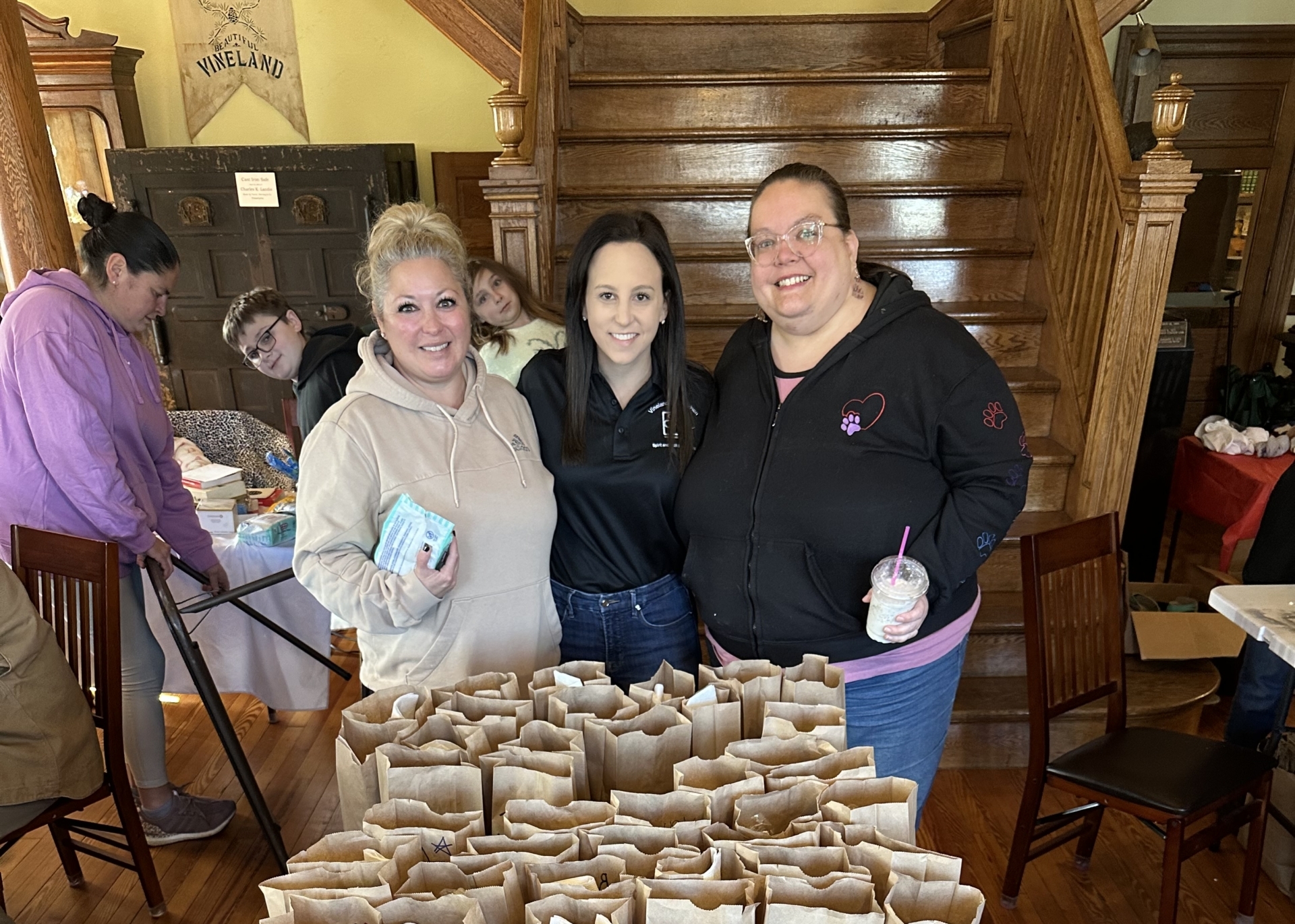Road Games
Teens learn about distracted driving in a relatable way.


This is not your dad’s driving lesson. Last Thursday, a group of Millville High School juniors gathered to literally test-drive the “One Simple Decision” virtual-driving instruction unit.
It’s a hands-on driving simulator, which resembles a video game, and lets students experience first-hand and in real time just how risky and dangerous it is to drive while distracted or impaired. Demonstrations like this tour from school to school are courtesy of the John R. Elliott HERO Campaign for Designated Drivers.
Wayne Shelton and Bob Clarke of HERO’s campaign partner, the South Jersey Transportation Planning Organization (SJTPO), guided the students one-by-one—first through a practice mode to get used to the on-screen car’s real pedals, steering wheel and controls—then switched each student to distracted mode.
At once, their reactions were altered to simulate impaired/distracted driving. The students, despite their best driving efforts, experienced realistic consequences like speeding tickets, collisions with vehicles and pedestrians, virtual police and EMTs arriving on the scene, and even running over pets.
The clever and engaging console is funded by a grant from the Honda USA Foundation.
The HERO Campaign was founded by the family of Navy Ensign John R. Elliott, who was killed by a drunk driver in July 2000, two months after graduating from the United States Naval Academy, where he was named the “Outstanding HERO” of his graduating class.
The Elliott family established the HERO Campaign to prevent drunk driving by promoting the use of safe and sober designated drivers, and spare other families from suffering the loss of a loved one due to drunk driving.
* * *
First up was Freddie Lavan III. He seemed psyched. “Are these the turn signals? Are the side mirrors real?” he asked.
In distracted mode 10 seconds later, “Swerving” appeared on the screen as his first mistake. “I wasn’t swerving,” he said, in an object lesson of the insidiousness of impaired driving.
A car pulled out in front of him. With his computerized reaction time slowed, he smashed into it. “Major Crash” said the graphic. Police, tow truck, ambulance—the whole deal.
“I’m getting paid for this one,” Lavan said with a laugh, meaning the insurance. Hahaha, did he forget he was impaired?
“It was realistic,” he admitted later. Pointing out he was from Missouri where the driving age is 15, he said he’d been driving some since he was 12.

“This is a game changer,” said Bill Elliott, father of John Elliott. Previous DUI prevention instruction methods had students wear “fatal vision” goggles to simulate drunk driving. “This is far more realistic,” he said.
Some of the realism was external to the game. Shelton sat right next to student drivers and chattered incessantly to them as a distraction.
“A lot of distractions come from inside the car; it’s not just texting,” he pointed out to the class.
“What is that field out there? Is that the softball field or baseball field, I can’t tell? Do you know that boy over there, who is he? You have to turn around, I forgot to bring my wallet.” Shelton was persistent.
Jalene Radford was completely ignoring him. Her eyes were straight ahead, both of her hands on the wheel, turning confidently. Wayne switched again briefly to his helpful instructor role and said, “That’s very good.”
Seconds later, the cat appears…Radford swerves…too late. “You got it,” someone tells her.
The roasts go on. Everyone is relaxed. A dog is next. Uh-oh.
“You have to go back and tell that poor owner,” laughs another student.
“No one will have a pet left when she’s done,” quips Shelton.

The lesson was a good example of sometimes hard-to-reach teens learning important life lessons while having fun at the same time—paths that don’t often cross.
Millville High School is among the first high schools in southern New Jersey to utilize the simulator in driver education classes.
“We are excited to give Millville High School students the chance to experience the DUI simulator and to partner with the HERO Campaign,” said Dave LaGamba, grade 6-12 supervisor of Health & Physical Education for Millville Public Schools. “It feels like a video game, but with a serious message.”
As part of the learning experience, students sometimes acted as distracters in the passenger seat. Cartier Pilot was observed as notably annoying. Thomas DuBois was notably unlucky to be next to him.
Blending the serious and the silly, DuBois said, “Don’t talk so much, yo, if I get in a crash, we both die.”
The experienced and student-oriented SJTPO team of Shelton and Clarke consistently brought the process around to its core objectives, like when a driver complained the other guy cut her off.
“You can’t control what happens,” Shelton said. “You can only control yourself.”
The “One Simple Decision” console had kids engaged, never bored…even though it was brought in by adults. It reached students on their level—video games.
Some pride was injured and some teasing went over the line, but the students learned a lot as if fun and education should always go together.
The HERO Campaign…
…offers the simulator to area high schools in cooperation with the Atlantic County Division of Highway Safety and the South Jersey Transportation Planning Organization. High school personnel can reserve the “One Simple Decision” simulator by e-mailing [email protected] or calling 609-233-4787.
The HERO Campaign promotes its message of safe and sober designated driving in partnership with prevention agencies, high schools, colleges, law enforcement, bars and taverns, and professional sports teams.
For more information on the HERO Campaign, call 609-626-3880 or visit herocampaign.org.










